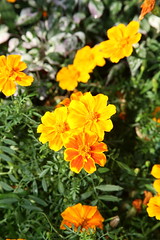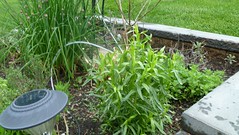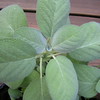Gardeners know that nature has a way of taking care of things. If you need proof, just take a look at a field of wildflowers. You never see people sprinkling seeds, laying bags of fertilizer on the freshly tilled land, or spraying pesticides to keep those pesky pests away. No, those gorgeous flowers spring up and flourish on their own. Luckily, these natural processes of fertilization, pest control, and productivity can be harnessed and utilized in your home garden through companion planting. Companion planting is the way farmers and gardeners plant certain vegetables, herbs, or flowers together because of the benefits they receive through their close proximity. Here are some of the common home garden plants that are great companion plants.
French Marigolds

Marigolds are the miracle companion plant; plus, they’re a beautiful addition to your flower garden. The French variety has a pesticide chemical in its roots, which goes into the ground. The pesticide is so strong that, years after the marigolds have been plowed down, it will continue to kill nematodes in the soil. Marigolds also deter whiteflies and some perennial weeds. The flowers are most helpful for peppers, tomatoes, squash, cucumbers, and broccoli. Make sure to avoid planting them near bean plants; the two do not work well together.
Borage with Anything

Borage is useful for much more than garnishing a Pimms Cup; it is also one of the most beneficial companion plants. While its pretty blue flower adds a great pop of color to any garden, the prolifically growing herb has a bounty of benefits. The leaves, which are rich in mineral salts, calcium, potassium, and vitamin C add a bounty of trace minerals to their soil. If you compost, this nutrient rich trait keeps giving by enriching your humus. Borage is one of the best attractors of honeybees and wasps; honeybees, of course, help with the pollination of your garden, while wasps are predatory and, therefore, defend your garden against pests. While beneficial to any plant, borage especially helps strawberries, tomatoes, squash, and cabbage.
French Tarragon

While tarragon may lure people into your kitchen, pests find it repugnant. The smell of tarragon can protect your whole garden from most pests that would otherwise terrorize your plants. Tarragon is also thought to have properties of a nurse plant, meaning it may increase the productivity and size of plants around it. It is especially helpful to eggplant.
Sage

Like tarragon, sage rebels pests. Specifically, sage should deter cabbage flies, carrot flies, black flea beetles, and cabbage maggots from your garden. It also helps with pollination by attracting honeybees.
Garlic, chives, onions

Humans aren’t the only creatures affected by the smells of the allium family. Many common garden pests also dislike their smell. Importantly, slugs and aphids, two species that can cause rampant damage and are very hard to get rid of, are warded off by alliums.
